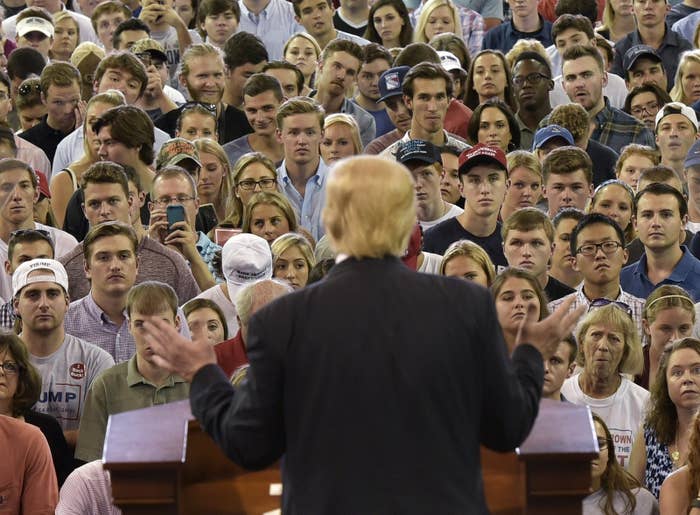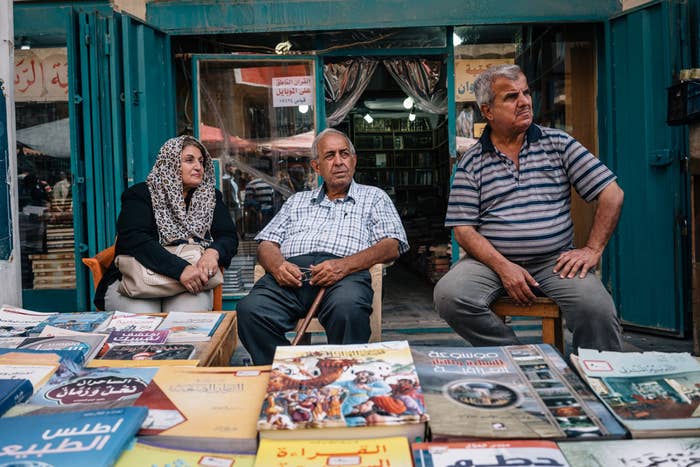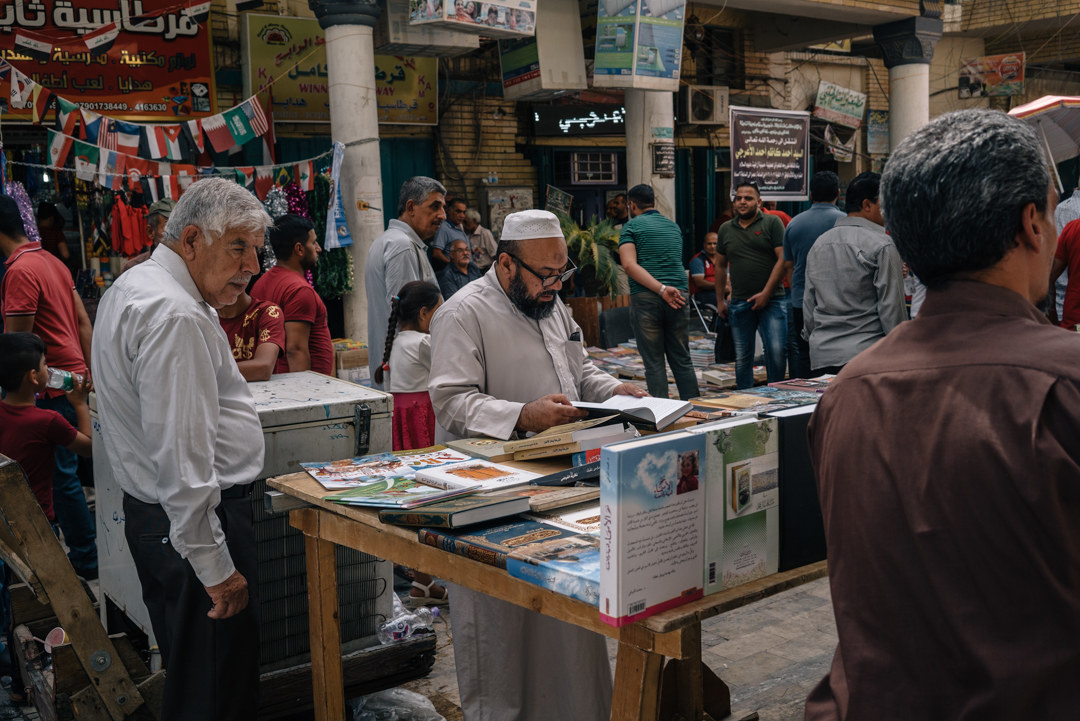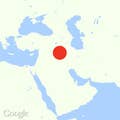
BAGHDAD — Mohammad al-Ani knows Donald Trump. He's been watching men like him rise in Iraq for years. They're the kind of guys who thunder on about outsiders causing all of Iraq’s troubles. They condemn foreigners, or, more subtly, those of another religion, sect, or ethnicity. They whip up public frenzies to target the weak and consolidate power.
“If you want to be president you have to balance all the religions inside your country,” Ani, the 21-year-old engineering student, said. He was spending his Friday morning earning a little extra cash selling books at Baghdad’s Mutannabi Street book market, a relative oasis of cosmopolitanism in a city, country, and region torn apart by conflicts rooted in political, religious, and ethnic differences.
“Look what happened in Iraq,” he said. “It’s what happens when you don’t respect people of other sects.”
The high-profile election campaign in the US casts a blinding light that reaches many parts of the world, especially a Middle East increasingly saturated with satellite television and internet news outlets. The insurgent candidacy of Donald Trump, who has called for a blanket ban on Muslim immigrants and threatened to seize Middle East oil assets as spoils of war, has grabbed the attention of the Arab world. Iraqis, in particular, are both emotionally and materially invested in the election outcome. They resent Americans for the disastrous 2003 invasion and its aftermath, but need US support in the ongoing war against ISIS.
Though few people in Baghdad follow the campaign as relentlessly as Americans glued to 24-hour news networks, Iraqis generally keep an eye on US politics. And as residents of a primary battleground of the sectarian conflict between Shia and Sunni gripping the region, they have developed a unique ability to spot a certain type of politician who feeds off hate and fear.
“I believe he has the same thinking as sectarians, extremists, and I don’t like that,” said Rouba Mohamed al-Motar, a researcher and civil society activist in her fifties. As she watched the throngs of people seeking out books or stationery for their children on Mutanabbi Street ahead of the beginning of the school season next month.
“Politicians like him are normal, ordinary — there are plenty like him,” she said. “But he’s trying to become the leader of one of the greatest countries in the world. He criticizes Muslims and minorities. He should be more moderate. He should be balanced.”
Even the worst Iraqi politicians behave better than Trump, said Thawra Seyed Jassim, 39, an economist at the Ministry of Trade. “Trump is a sectarian man,” she said. “He’s against Islam. Yes, there are those like him here, but they are not so obvious. They say it under the table. Frankly, he speaks coarsely to everyone.”

Marathon two-year campaign seasons, which have become the norm in the US, are unheard of anywhere else in the world. Non-Americans are stunned to learn US elections won’t take place until November 8, convinced that the ferocity and intensity of the coverage suggest the vote is imminent. Loads of people in Iraq outside the circle of intellectuals and political elite don’t follow or care about the US elections.
“I have no idea about Trump, to be honest with you,” said Azhar Mohammad, 43, who studied law and is now raising her children. “I follow Arab news about Arab countries, including Iraq.”
A minority of Iraqis in Baghdad is rooting for Trump, convinced that the mainstream US foreign policy espoused by both President Barack Obama and Democratic nominee Hillary Clinton has brought nothing but woe to the region. “We have a lot of unfulfilled promises from the US administration of President Obama and Secretary Clinton over the last eight years,” said Moaid Allami, head of the Iraqi Journalists Syndicate. “I’d go with Mr. Trump. He’s a strong man. He speaks directly. And he wants to make changes.”
Lt. Gen. Anwar Hamad Amin, commander of the Iraqi air force, said he didn’t think it would make any difference for Iraq who wound up becoming the next US president. The US national security establishment, he said, would continue on the same course of supporting Iraqi troops as they fought against ISIS. “I am sure that no matter what happens, the American strategy stays the same,” he told BuzzFeed News in an interview at his headquarters. “It’s very important for both countries to figure out how to defeat ISIS as soon as possible.”

Trump’s talk of making countries like Iraq pay for US invasions by taking their oil has enraged many Iraqis. “Didn’t they already take our oil?” quipped Ani, the engineering student.
Actually, they didn’t. Instead the US spent an estimated $5 trillion on wars in Iraq and Afghanistan with little to show for it.
Lawmaker Dhia Assadi said Trump’s belligerent comments on Iraq reflected longstanding Western bigotry about Arabs not being able to manage their own affairs. He predicted any such move would result in disaster. “The thinking is Iraqis can’t do anything good with the oil money, so why not take it,” he said. “Iraqis will fight, of course. Even when the Americans came and announced they weren’t taking the oil, the Iraqis fought, so imagine what they would do now.”
Still, after decades of wars that have included an eight-year war with Iran, two against the US, a Sunni insurgency, and a sectarian civil war, many Iraqis blanche at any talk of conflict or further bloodshed.
“We want to live in peace and stability,” said Sabah Jalil Yousef, 59, a self-educated laborer shopping for books along Mutanabbi Street. “We don’t want violence. No problem. Take our oil. It could be like a tax we pay. But support the Iraqis.”

